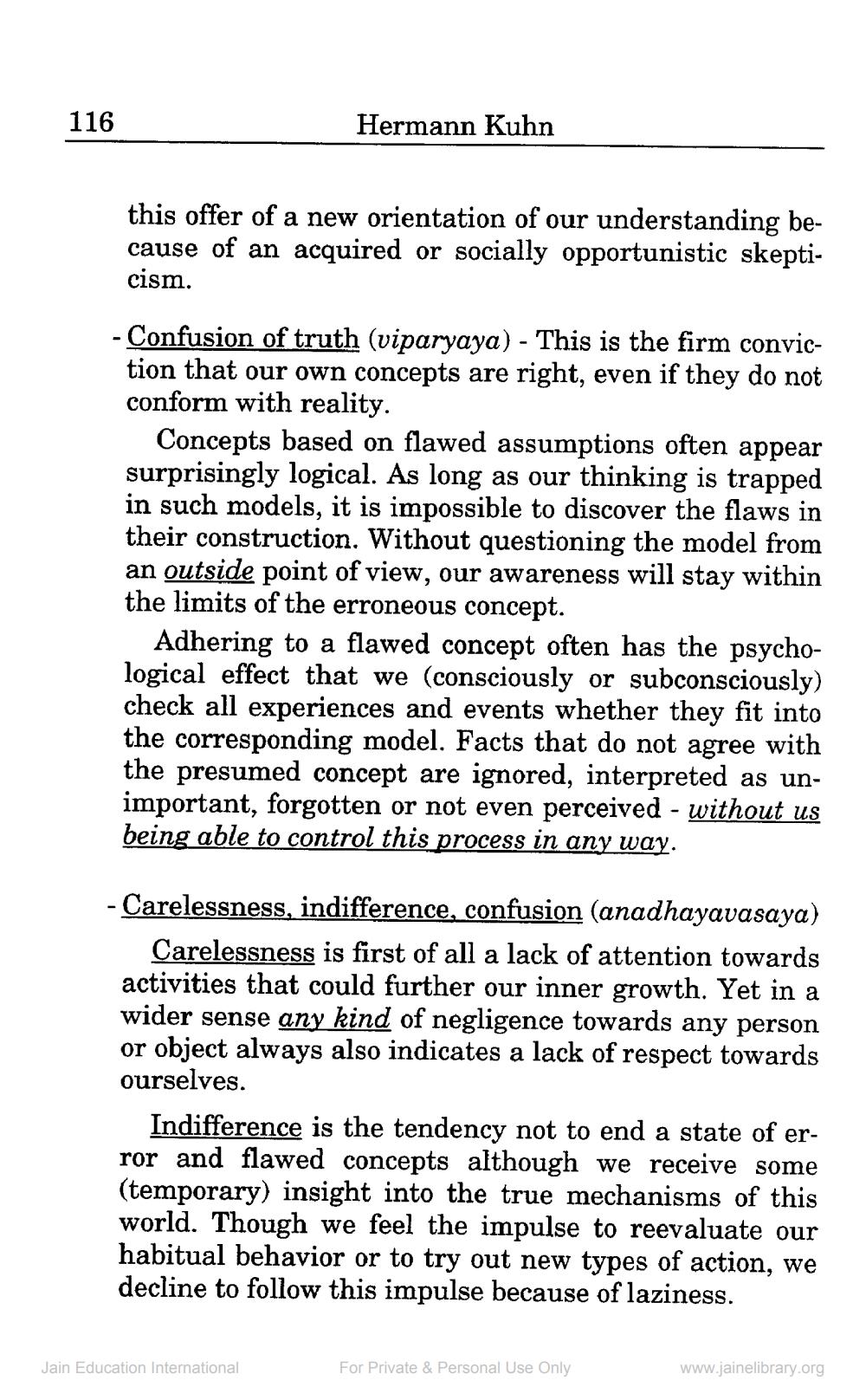________________
116
Hermann Kuhn
this offer of a new orientation of our understanding because of an acquired or socially opportunistic skepticism.
- Confusion of truth (viparyaya) - This is the firm conviction that our own concepts are right, even if they do not conform with reality.
Concepts based on flawed assumptions often appear surprisingly logical. As long as our thinking is trapped in such models, it is impossible to discover the flaws in their construction. Without questioning the model from an outside point of view, our awareness will stay within the limits of the erroneous concept.
Adhering to a flawed concept often has the psychological effect that we (consciously or subconsciously) check all experiences and events whether they fit into the corresponding model. Facts that do not agree with the presumed concept are ignored, interpreted as unimportant, forgotten or not even perceived - without us being able to control this process in any way.
- Carelessness, indifference, confusion (anadhayavasaya)
Carelessness is first of all a lack of attention towards activities that could further our inner growth. Yet in a wider sense any kind of negligence towards any person or object always also indicates a lack of respect towards ourselves.
Indifference is the tendency not to end a state of error and flawed concepts although we receive some (temporary) insight into the true mechanisms of this world. Though we feel the impulse to reevaluate our habitual behavior or to try out new types of action, we decline to follow this impulse because of laziness.
Jain Education International
For Private & Personal Use Only
www.jainelibrary.org




